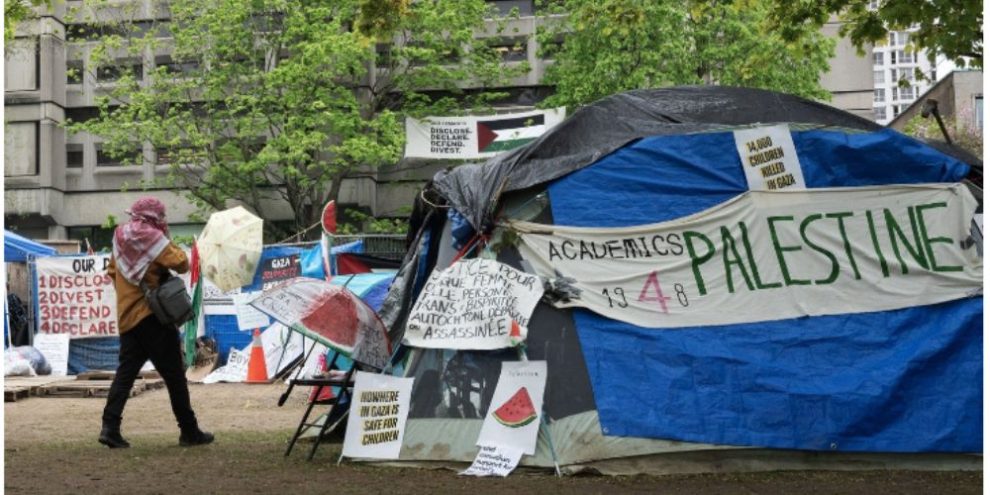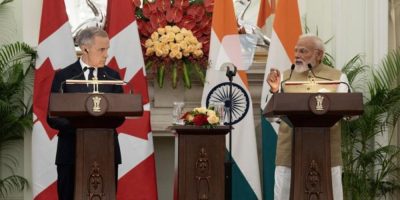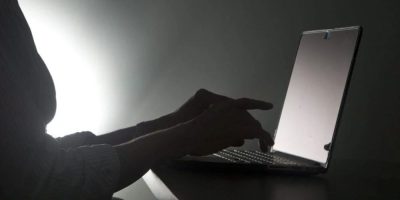
Updated May 15, 2024 @ 1:52pm
A Quebec Superior Court judge has refused McGill University's request for an injunction to dismantle the pro-Palestinian encampment that has been set up on its downtown Montreal campus since late April.
Justice Marc St-Pierre ruled Wednesday that the school did not prove the situation at the encampment was sufficiently urgent to justify the measure.
In a written decision, he said the case also raises questions of conflicting rights — in this case, the protesters' freedom of expression versus McGill's property rights. He said there is a need for a larger debate on the question, including whether a "peaceful occupation" should fall under the right to freedom of expression.
"The question is important in addition to being complex, so a more in-depth analysis than is normally done in the context (of) a provisional injunction is desirable," he wrote.
Lawyers for the university asked the court on Monday to order the protesters to stop occupying its grounds and to authorize Montreal police to assist the school in dismantling the encampment.
McGill lawyer Jacques Darche told the court that the encampment presents a health and safety risk and is preventing McGill from holding convocation ceremonies on its property.
He said the protesters have become "occupiers" living in a fortified and barricaded mini-village, and that McGill can't fulfil its responsibility to ensure safety on campus because its representatives aren't allowed inside.
But St-Pierre said in his decision that McGill "cannot report any serious or violent incident since the erection of the first tents on the campus site," including during a recent faceoff with counter-protesters that was cited by McGill as proof of a potential safety risk.
The school has also secured an alternate venue to hold its convocation ceremonies.
On Monday, lawyers representing different groups of protesters argued in court that there's no proof the encampment is dangerous, nor that there is an urgent need to dismantle it. They said the protest camp isn't blocking entry to the school, contains safety equipment such as fire extinguishers and has medical personnel on site.
They also argued that the right to protest is fundamental and that universities have traditionally been treated differently than other private property when it comes to demonstrations.
St-Pierre noted that the protesters submitted a number of affidavits arguing the camp is not a safety risk, and that McGill's fear of an incident is not reason enough to grant an injunction.
"The undersigned does not, in any case, issue an injunction order as a preventive measure in case something purely hypothetical happens in the future," he said.
McGill issued a statement expressing disappointment with the ruling.
"Due to rising tensions and safety, security, and public health concerns, and having exhausted all operational protocols available, the university sought a provisional injunction, which would recognize McGill’s property rights and the urgency of the matter," it wrote Wednesday following the decision.
The school noted that the encampment had been declared unlawful by a judge who found earlier this month that the protesters were illegally occupying the premises, even as that judge also declined a different injunction request from two students who argued the encampment created an environment of aggression and left them feeling unsafe.
The protesters fenced off an area and erected tents on April 27, following a wave of similar campus protests in the United States linked to the Israel-Hamas war. The protesters are demanding that the university divest from companies that are "complicit" in Israel's occupation of the Palestinian territories and cut ties with Israeli institutions.
Banner image: A person walks past the pro-Palestinian encampment on McGill University campus, in Montreal on May 13, 2024. THE CANADIAN PRESS/Ryan Remiorz
This report by The Canadian Press was first published May 15, 2024.





